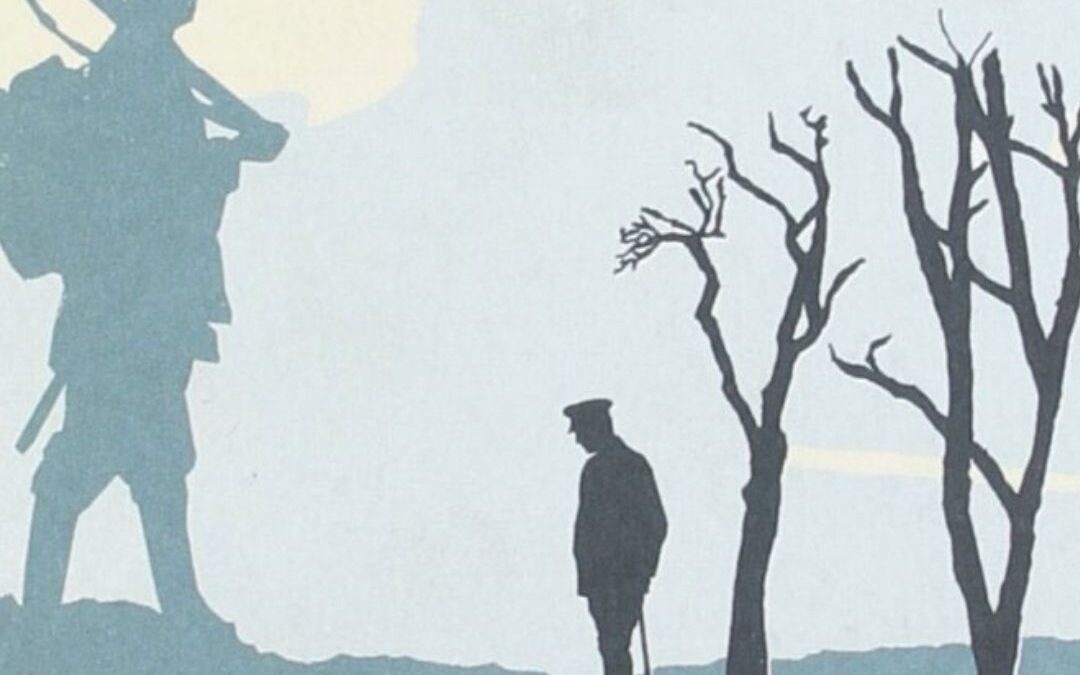Book Review
Edinburgh, 1917
Regeneration by Pat Barker takes place in Craiglockhart War Hospital, Edinburgh in 1917. Dr. Rivers is the psychiatrist in charge of the hospital and it is his job to conduct near-daily interviews with his patients in an attempt to help them overcome the many and varied symptoms of shellshock.
It so happens that two of his patients are the poets Siegfried Sassoon and Wilfred Owen who did indeed attend the hospital at the same time. Sassoon plays a large role in the story, but the book is more about the impacts of the First World War on every echelon of society, from the Upper-Class Captain to the Working-class Tommy, than just this famous poet.
The story is predominantly told from the point of view of Dr. Rivers as he does his rounds. We also learn about his history prior to coming to the hospital, that he himself suffered from a stutter and feels the guilt many men did at not being sent overseas or being returned home on leave.
While Dr. Rivers, Sassoon, Owen, and Robert Graves are real people, Barker includes a number of fictional characters, namely Billy Prior and Sarah Lumb. Barker uses Prior and Lumb as a way of taking the action out of the hospital and demonstrating that despite the carnage, people are people and do look for pleasure where they can.
Sassoon and Graves regularly meet in the local Golf Club for a drink, a game of golf and a discussion on the politics and morality of war (including Sassoon’s highly controversial ‘A Soldier’s Declaration’ in which he declared the war as ‘being deliberately prolonged by those who have the power to end it’).
We later see Prior skulking the streets of Edinburgh looking for beer and a woman with whom he can forget the war and who won’t try to pry inside his mind. They manage to find love of sorts and although I wasn’t convinced they would live happily ever after, I hoped they would.
The horror builds
For me, there isn’t so much an increase in tension throughout the book, (as you would find in a more plot-driven novel), rather an increase how much I was told about the sights, sounds and landscape the men were exposed to, and the effects of living that way long term.
The climax for me was the discovery that the torture didn’t end when they were sent back from France. Those that were put under the ‘care’ of Dr. Lewis Yealland were subjected to his own brand of therapy and I found that scene to be particularly upsetting.
As you can imagine, there is no happy ending to Regeneration, but there is closure, especially for Sassoon and Rivers.
I’m not normally a fan of Booker winners, I prefer a bit more story and pace than most offer, but I was absolutely drawn into this world of Craighlockhart. It may be because I live close to the hospital and so can picture it so clearly and that I’m fascinated by all things WWI.
I rooted for each of the characters. I wanted Rivers to cure them all so they’d live happily ever after. Of course, I knew that wouldn’t happen but it didn’t stop me hoping.
Curiously, it was the fictional Prior who felt the most real to me. Barker got right into his mind and showed us so clearly the ongoing conflict within him. He was a fascinating mixture of anger, fear and hope. The very fact he wanted to enter into a relationship with Sarah showed me he still had a desire for love and a family. He retained some optimism for his future.

5 Stars from me
I’ve read some very conflicting reviews of Regeneration but I loved it. I did listen to the audio version rather than read the print version, so that may have made a difference, but I found it so well written, so insightful and it gives the average modern reader a glimpse into the views, language and therapeutic practices of the time. It’s easy to forget that the level of PTSD experienced by WWI soldiers was unprecedented and in many ways the medical profession was groping in the dark.
If you’re interested in war stories, and stories that examine the darker side of the human psyche I think you’ll get a lot from this read. I might take a break first, but I will go on to read the two other books in the Regeneration Trilogy, The Eye In The Door and The Ghost Road.
As a companion read, you might want to try All Quiet On The Western Front by Erich Maria Remarque. War is horrific no matter what side of the battlelines you fight.
If you liked this book review, you’ll find more here:






